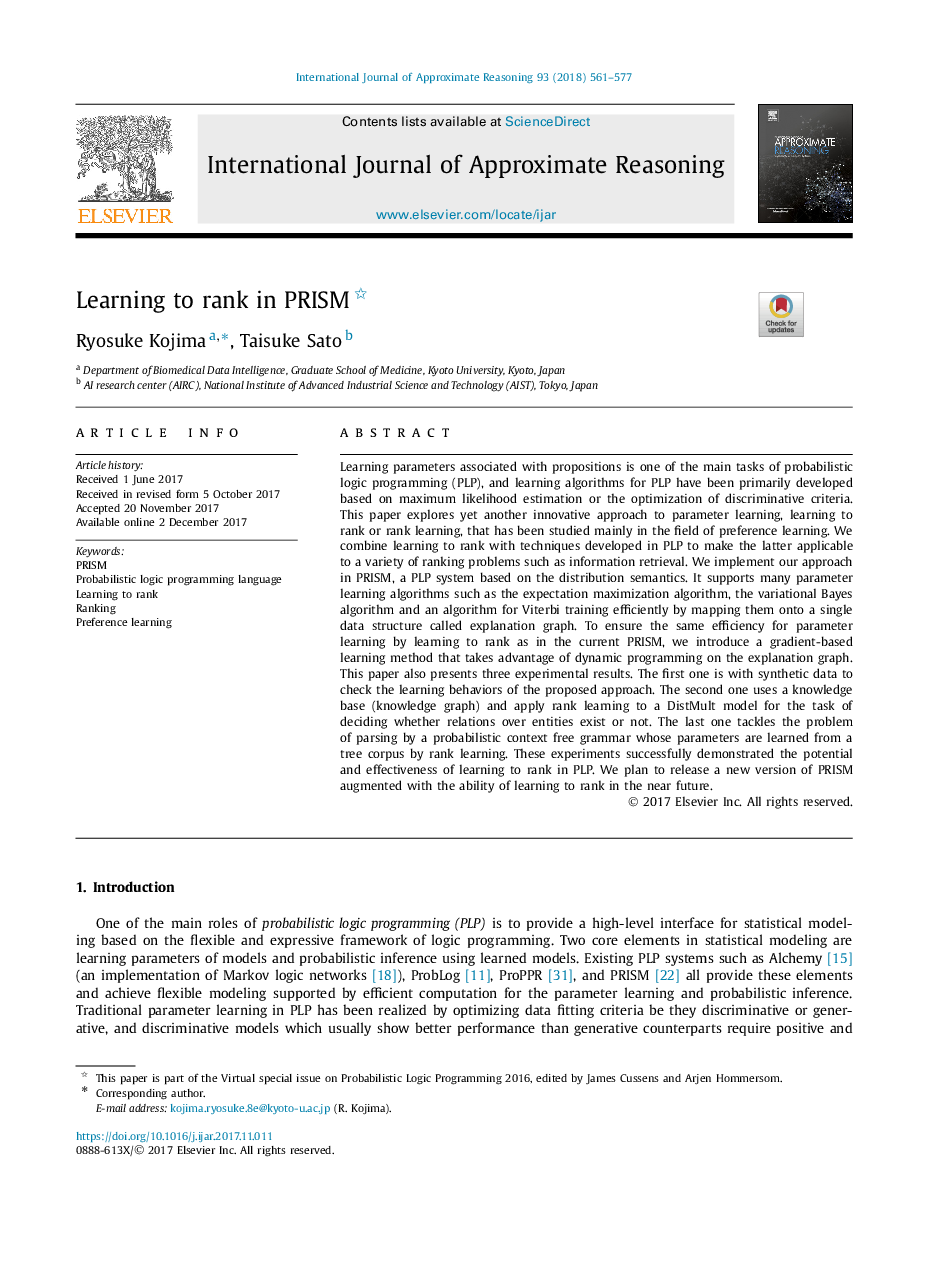| کد مقاله | کد نشریه | سال انتشار | مقاله انگلیسی | نسخه تمام متن |
|---|---|---|---|---|
| 6858836 | 1438411 | 2018 | 17 صفحه PDF | دانلود رایگان |
عنوان انگلیسی مقاله ISI
Learning to rank in PRISM
دانلود مقاله + سفارش ترجمه
دانلود مقاله ISI انگلیسی
رایگان برای ایرانیان
کلمات کلیدی
موضوعات مرتبط
مهندسی و علوم پایه
مهندسی کامپیوتر
هوش مصنوعی
پیش نمایش صفحه اول مقاله

چکیده انگلیسی
Learning parameters associated with propositions is one of the main tasks of probabilistic logic programming (PLP), and learning algorithms for PLP have been primarily developed based on maximum likelihood estimation or the optimization of discriminative criteria. This paper explores yet another innovative approach to parameter learning, learning to rank or rank learning, that has been studied mainly in the field of preference learning. We combine learning to rank with techniques developed in PLP to make the latter applicable to a variety of ranking problems such as information retrieval. We implement our approach in PRISM, a PLP system based on the distribution semantics. It supports many parameter learning algorithms such as the expectation maximization algorithm, the variational Bayes algorithm and an algorithm for Viterbi training efficiently by mapping them onto a single data structure called explanation graph. To ensure the same efficiency for parameter learning by learning to rank as in the current PRISM, we introduce a gradient-based learning method that takes advantage of dynamic programming on the explanation graph. This paper also presents three experimental results. The first one is with synthetic data to check the learning behaviors of the proposed approach. The second one uses a knowledge base (knowledge graph) and apply rank learning to a DistMult model for the task of deciding whether relations over entities exist or not. The last one tackles the problem of parsing by a probabilistic context free grammar whose parameters are learned from a tree corpus by rank learning. These experiments successfully demonstrated the potential and effectiveness of learning to rank in PLP. We plan to release a new version of PRISM augmented with the ability of learning to rank in the near future.
ناشر
Database: Elsevier - ScienceDirect (ساینس دایرکت)
Journal: International Journal of Approximate Reasoning - Volume 93, February 2018, Pages 561-577
Journal: International Journal of Approximate Reasoning - Volume 93, February 2018, Pages 561-577
نویسندگان
Ryosuke Kojima, Taisuke Sato,